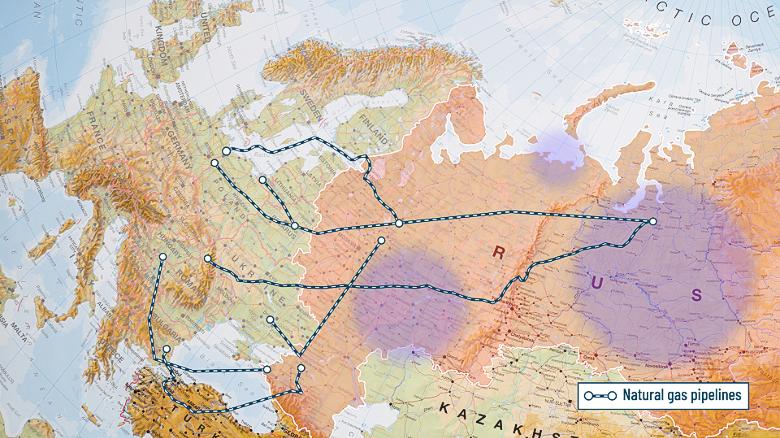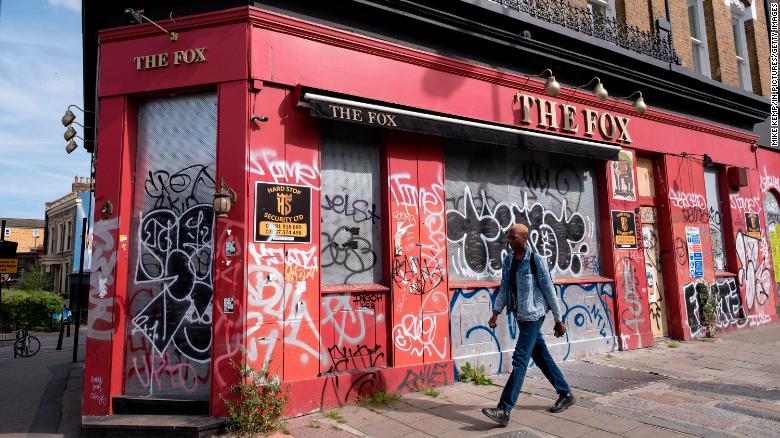By Julia Horowitz, CNN Business
Updated 1152 GMT (1952 HKT) August 30, 2022




London (CNN Business)First it was the coronavirus pandemic that forced pubs to shut their doors and rely on government support to survive the collapse in business. Now, Britain’s iconic watering holes say they are battling an even greater threat: soaring energy prices.
The chief executives of six leading pub and brewing businesses are warning that surging bills for electricity, heating and other essential supplies could force many pubs and craft breweries to close, leading to a wave of job losses as the country braces for a recession.
“Across our businesses we are witnessing price rises which are causing irreversible damage,” they wrote in a letter to the UK government calling for immediate help. “Hikes can now be upwards of 300% on pre-pandemic energy bills, with the current average increase around 150% across the beer and pub sector, putting jobs and businesses at risk.”
Nick Mackenzie, the head of the Greene King pub chain, said one location it works with reported that energy costs had gone up by £33,000 ($38,744) a year.
“While the government has introduced measures to help households cope with this spike in prices, businesses are having to face this alone, and it is only going to get worse come the autumn,” Mackenzie said.

Graffiti covers a closed-down pub in London.
Some pubs were being quoted increases of more than 400% in the price of one-year gas supply contracts, while others were finding it impossible to secure contracts at all, said Kevin Georgel, CEO of St Austell Brewery.
“The cost of energy threatens to cause mass business failure and the loss of thousands of pubs across the country,” he added.
The UK energy regulator Ofgem announced last week that bills for households would rise 80% to an average of £3,549 ($4,159) a year from October. CEO Jonathan Brearley said Britain’s next prime minister would need to take immediate action when they take office next week to limit the fallout.
“The response will need to match the scale of the crisis we have before us,” he said.
The situation is expected to get worse before it gets better. Energy markets are extremely volatile as traders consider whether Russia could completely cut off gas flows to Europe just as the weather gets cold and more energy is needed. The United Kingdom also has less storage for gas than the rest of Europe, which has been stockpiling supplies.
That’s stoking alarm about eye-watering costs for households into next year. But businesses say they’re not getting enough help either, emphasizing that the crisis will leave many on life support.
“Small businesses are left out in the cold when it comes to energy bills, with the vast majority excluded from the household energy price cap and other protections designed for domestic household consumers,” Martin McTague, who heads up the Federation of Small Businesses, said in a statement last week.
“Unlike large corporates, small firms cannot hedge costs and negotiate deals with their large energy suppliers. Many of our members say the eye-watering energy bills could be the final nail in the coffin as they struggle to get through winter,” he continued.
For Britain’s pubs, it’s another reason to worry about the future. For years, the industry has struggled as people ditch drinking in pubs for bars, restaurants and their homes. Then the pandemic hit, and the government ordered pubs to close for the first time in the country’s history. Pubs stayed open during World War I and World War II to boost morale.
Now, business conditions are deteriorating again.
“The UK’s brewing industry is facing a crisis far graver than that which we faced during the Covid lockdowns of the past few years,” said Paul Davies, the CEO of British brewer Carlsberg Marstons.
He noted that gas and energy costs have nearly tripled since 2019 — and it’s not the only expense to go up. The price of malt, a key ingredient in beer, has doubled, and aluminum costs have jumped more than 50%. Brewers are also worried about supplies of carbon dioxide after one of the biggest UK producers closed a plant because of the soaring cost of energy.
There were 39,973 pubs in England and Wales as of June, the lowest level on record and a decline of more than 7,000 locations since 2012, according to an analysis by the Altus Group.
The real estate consultancy said that while pubs proved “remarkably resilient” during the pandemic, despite deep uncertainty, the energy crisis and inflation are creating “new headwinds.”
